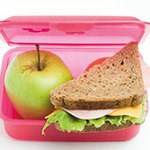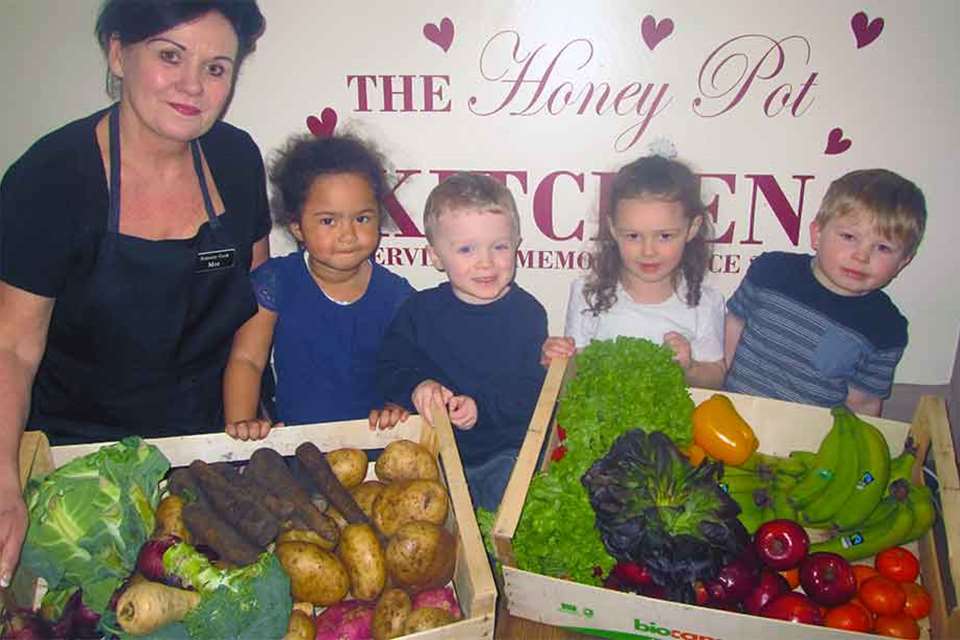A Unique Child: Nutrition - Pack it in?
Dr Patricia Lucas
Monday, September 18, 2017
As packed lunches look set to become more common, Dr Patricia Lucas assesses their quality and launches a survey to find out more

Packed lunches in primary schools often have too little protein and too much sugar, salt and saturated fat. White bread sandwiches dominate, and sweetened drinks are common. No surprise then that less than 2 per cent of them meet nutritional standards. Less well-documented, and less often discussed, are packed lunches in early years settings. Are they any healthier? And are they about to become more common with the advent of the 30 hours’ free childcare? We hope you will help us find out.
In 2012, a Children’s Food Trust survey of 57 early years settings recorded the contents of 118 pre-school packed lunches and found that 42 per cent included crisps and 24 per cent had confectionery, and on average they contained twice as much added sugar as meals provided by nurseries.
When Nursery Worldand the Children’s Food Trust conducted a national survey of settings in 2015, a tiny minority of respondents (3 per cent) provided only sandwiches and cold foods, but many looked set to follow suit as:
- 44 per cent were already concerned about how the 30 hours’ free childcare would affect food provision
- 57 per cent said the 30-hour funding would not be sufficient to cover provision
- 31 per cent said they were planning to ask parents to provide packed lunches once the free entitlement was extended.
Meals are not included in the funding rates for free nursery education and now, under the 30 hours free entitlement, the Government has said that settings can charge parents for providing meals but cannot make a place conditional on a parent paying extra for food.
Children from the poorest families are likely to be the worst affected. Settings supporting these children are faced with the choice of continuing to provide meals from within their limited budgets, charging parents for food or asking them to provide packed lunches for their children – so incurring costs that many families can ill afford.
Whatever option they choose, the quality of children’s diet is likely to be compromised, and there is a potential for health inequalities to increase.
WHY PRE-SCHOOL DIET MATTERS
Young children’s diet matters because the early years provide the building blocks of development, and early years settings are ideally placed to support the development of healthy habits.
During this period of rapid growth, children need essential nutrients to grow strong bodies. However, many young children have a poor diet, which contributes to increased rates of childhood obesity, and a range of diseases including type 2 diabetes and tooth decay.
- Among the evidence for children’s poor diets is research led by Hayley Syrad of University College London. It describes the diet of two-year-olds in the UK and found:
- 70 per cent of the children were not getting enough iron in their diet and 94 per cent not enough Vitamin D (although some also took vitamin supplements)
- One third of children’s energy intake came from sugars, and overall the energy intake was too high for most children (63 per cent) – which is likely to contribute to weight gain
- On average, children were consuming only about half the amount of fibre recommended for their age
- Their sodium (salt) intake was nearly double the recommended levels.
As well as nutritional variety, young children’s diet also needs variety in tastes and textures, as it is at this age that the taste palate is developing. By steering children towards trying new foods and away from a diet high in refined foods and sugar, we increase the chances of them opting for a varied and healthy diet through childhood and into adulthood.
Despite the importance of young children’s diet, food provided by early years settings is less regulated than that for older children. The School Food Standards have been shown to increase the quality of school food, and to improve student attendance and achievement. The equivalent pre-school standards are compulsory only in Scotland, with England having only voluntary guidance. (Internationally, regulation and quality also vary greatly – see below.)
BRISTOL RESEARCH
To start filling the gap in our knowledge of young children’s packed lunches – and pilot our survey – in 2014/15, we surveyed all 157 early years registered with Bristol City Council, excluding childminders who were not included in this initial study. We opted for Bristol because the council had been promoting healthy packed lunch policies and providing training and materials to all local settings.
The survey covered setting type and size, the age of children cared for, the number of children having lunch each day and whether lunches were provided by the setting or from home. We also asked about the setting’s packed lunch policies.
Sixty-seven settings completed the survey. Of these:
- 32 (48 per cent) used only packed lunches
- 24 (36 per cent) offered only lunches provided by the setting
- nine (13 per cent) offeredboth
- 55 (82 per cent) had a written healthy eating policy, including 70 per cent of those who used packed lunches.
We found that those settings using packed lunches were significantly more likely to be in the public and voluntary sector, smaller, and provide care only for children aged over two years.
While we didn’t ask why settings opted for packed lunches, we know that lack of kitchen facilities and the cost of providing meals for those using the 15 hours free provision for three- and four-year-olds are likely to be factors.
In total, more than 10,000 lunches were eaten each week in these settings. Of these, 3,199 (29 per cent) were packed. Thirty-one described items encouraged, discouraged or disallowed in packed lunches:
- 30 discouraged or disallowed specific foods.
- 24 disallowed nuts or other common allergens.
- 20 discouraged confectionery, 14 fizzy or sugary drinks, and nine crisps (although two allowed crisps once a week).
- 28 encouraged foods – most often simply saying ‘healthy’ foods, though specific advice included ‘fruit, cheese’, ‘at least two fruit or vegetables and food containing protein and calcium such as chicken and a yoghurt’.
- One used Eat Better, Start Better guidance produced by the Children’s Food Trust, and another used Bristol City Council materials.
- Four made specific positive recommendations about drinks; three allowed only water and one encouraged watered-down fruit juice.
- Two healthy actions were mentioned: encouraging children to eat savoury food first and speaking to parents if unhealthy foods appeared regularly in lunches.
Students from Bristol City College also sent us notes on what they saw in packed lunches, and this made depressing reading. A typical lunch for a child in a group care setting contained:
- Pom-Bear potato snacks
- a cheese sandwich on white bread
- raisins
- a banana
- Frube sweetened yoghurt.
Now you can help us establish how typical the Bristol findings are by taking part in our national survey (see below).
PACKED LUNCHES SURVEY 
In 2015, 367 of you responded to the national childcare food survey carried out jointly byNursery World and the Children’s Food Trust, making it the biggest ever of its kind. We, at the University of Bristol, are now asking you to help us find out about packed meals.
We want to know how many settings and children are using home-provided meals, and what you are doing to make sure these are as healthy as possible.
Fill in the survey at https://tinyurl.com/EYS-meals.You will see online tracking of responses, and we will report our findings inNursery World. We are particularly keen to know why you might be choosing to use packed lunches for some or all of your children, and to hear from childminders.
MORE INFORMATION
- “Most school packed lunches fail nutritional standards” – Leeds study’, www.nurseryworld.co.uk
- Pre-school food survey (2012), http://media.childrensfoodtrust.org.uk/2015/06/Baseline-pre-school-food-survey.pdf
- Nursery World and Children’s Food Trust’s Childcare Food Survey (2015), http://media.childrensfoodtrust.org.uk/2016/01/Nursery-World-Survey-Report-Final-11012015.pdf
- Syrad H et al (2016) ‘Energy and nutrient intakes of young children in the UK: findings from the Gemini twin cohort’, British Journal of Nutrition, 115 (10), pp1843-1850
- www.nurseryworld.co.uk/nursery-world/news/1161767/updated-30-hours-guide-sets-out-expectation-that-parents-pay-for-meals
- Eat Better, Start Better guidance, www.childrensfoodtrust.org.uk/childrens-food-trust/early-years/ey-resources
Dr Patricia Lucas is a reader in child health research at the University of Bristol










